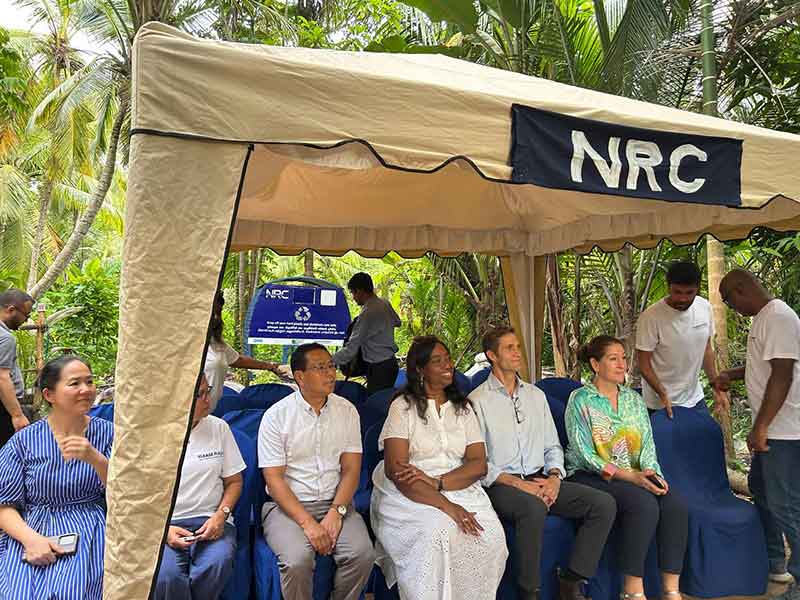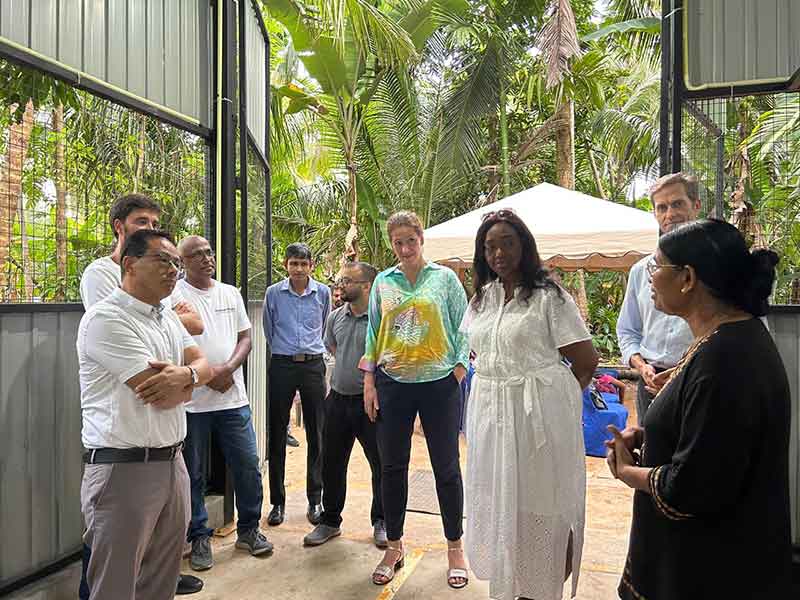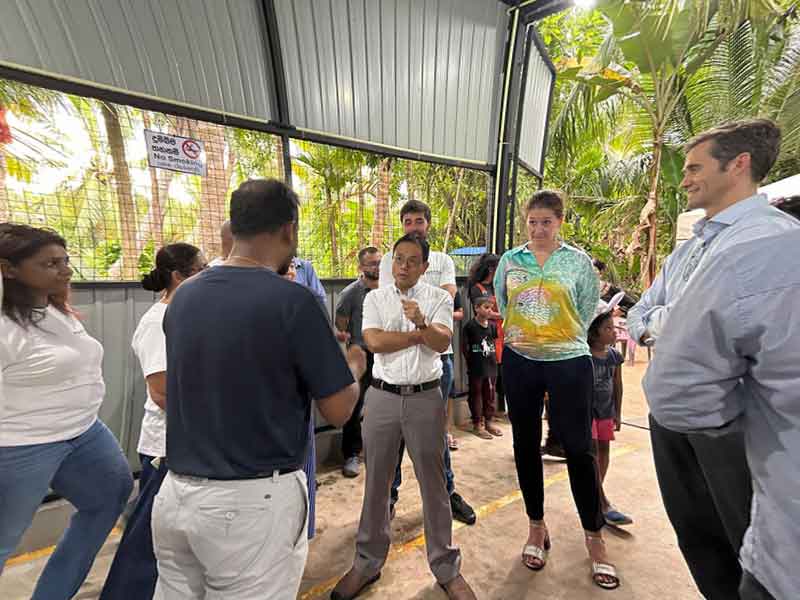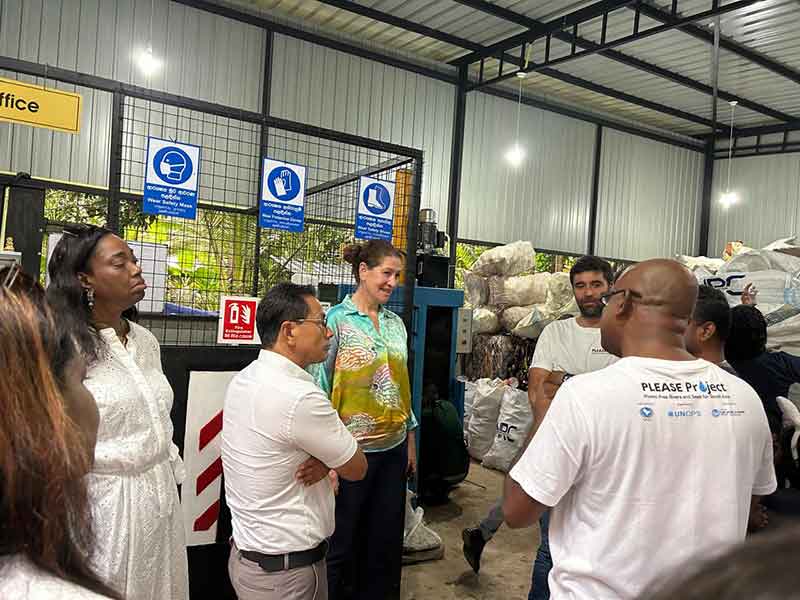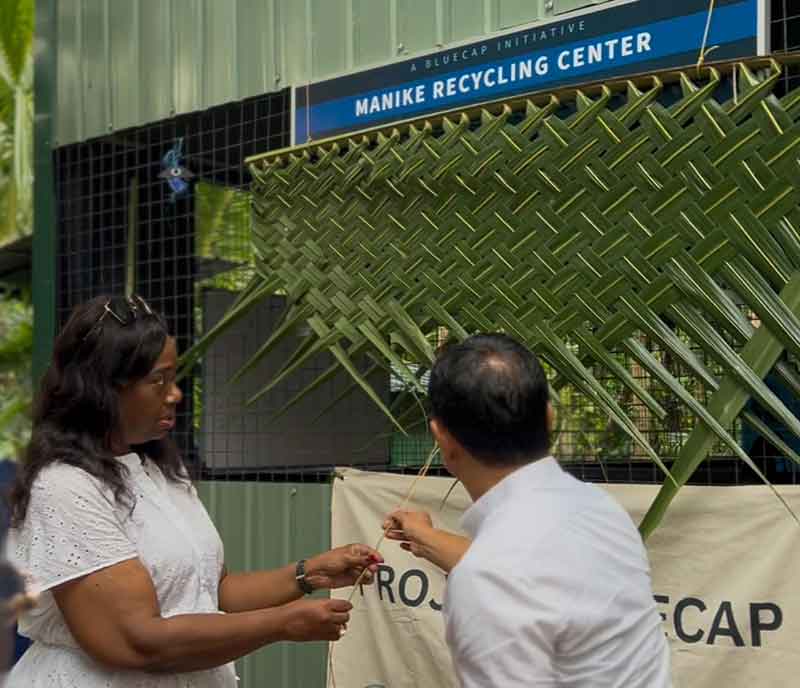November 12, 2024
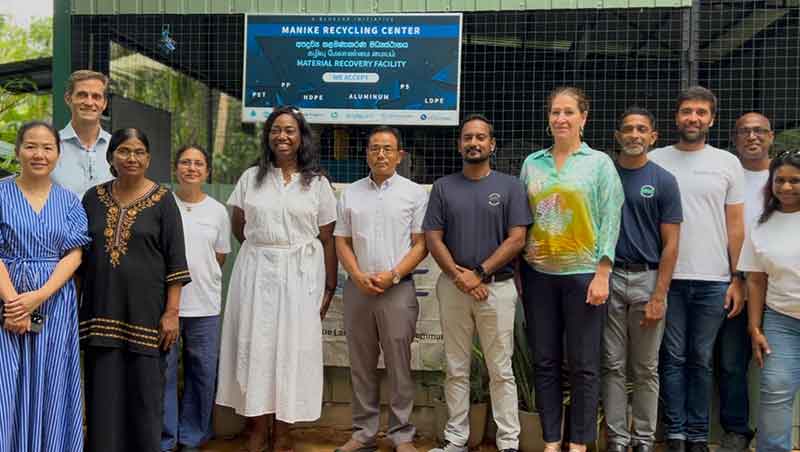
The Manike Recycling Center—Sri Lanka’s first women-led Materials Recovery Facility (MRF)—recently opened in Balapitiya, marking a significant milestone in environmental sustainability and women’s empowerment. This initiative, established by local waste collector Yaso Manike as part of the NRC’s Blue CAP Project under the PLEASE Project, is implemented by SACEP, supported by the World Bank, with the implementation support of UNOPS. The center demonstrates the power of grassroots initiatives in driving meaningful change. By converting plastic waste into valuable products, it provides economic opportunities for local women and inspires broader community involvement.
At the recent inauguration, UNOPS Deputy Executive Director Sonja Leighton-Kone, SACEP Director General Norbu Wangchuk, and South Asia Multi-Country Office Director Charles Callanan praised the center's collective impact. Ms. Leighton-Kone noted, “This center shows that waste management can be about more than just collection—it’s about creating something meaningful and impactful.” Mr. Wangchuk echoed this sentiment, highlighting how projects like these inspire optimism in the fight against climate challenges: “Stories like Yaso Manike’s give us hope and remind us that local actions can have a powerful impact.”
The Manike Recycling Center not only converts plastic waste into products like polyester wool but also functions as an educational hub, promoting responsible waste management and supporting a circular economy. This initiative, spearheaded by community efforts and supported by SACEP, exemplifies the power of collective action in addressing global environmental issues.
NRC’s "Building a Blue Lanka by Uplifting Communities" (BLUECAP) project aims to enhance plastic waste collection over the next five years by setting up 15 Material Recovery Facilities (MRFs) and creating over 5,000 jobs. Spanning 15 districts and covering more than 90% of river mouths, the project integrates education, community empowerment, and women’s initiatives to collect 963 metric tons of recyclable plastic waste annually.
